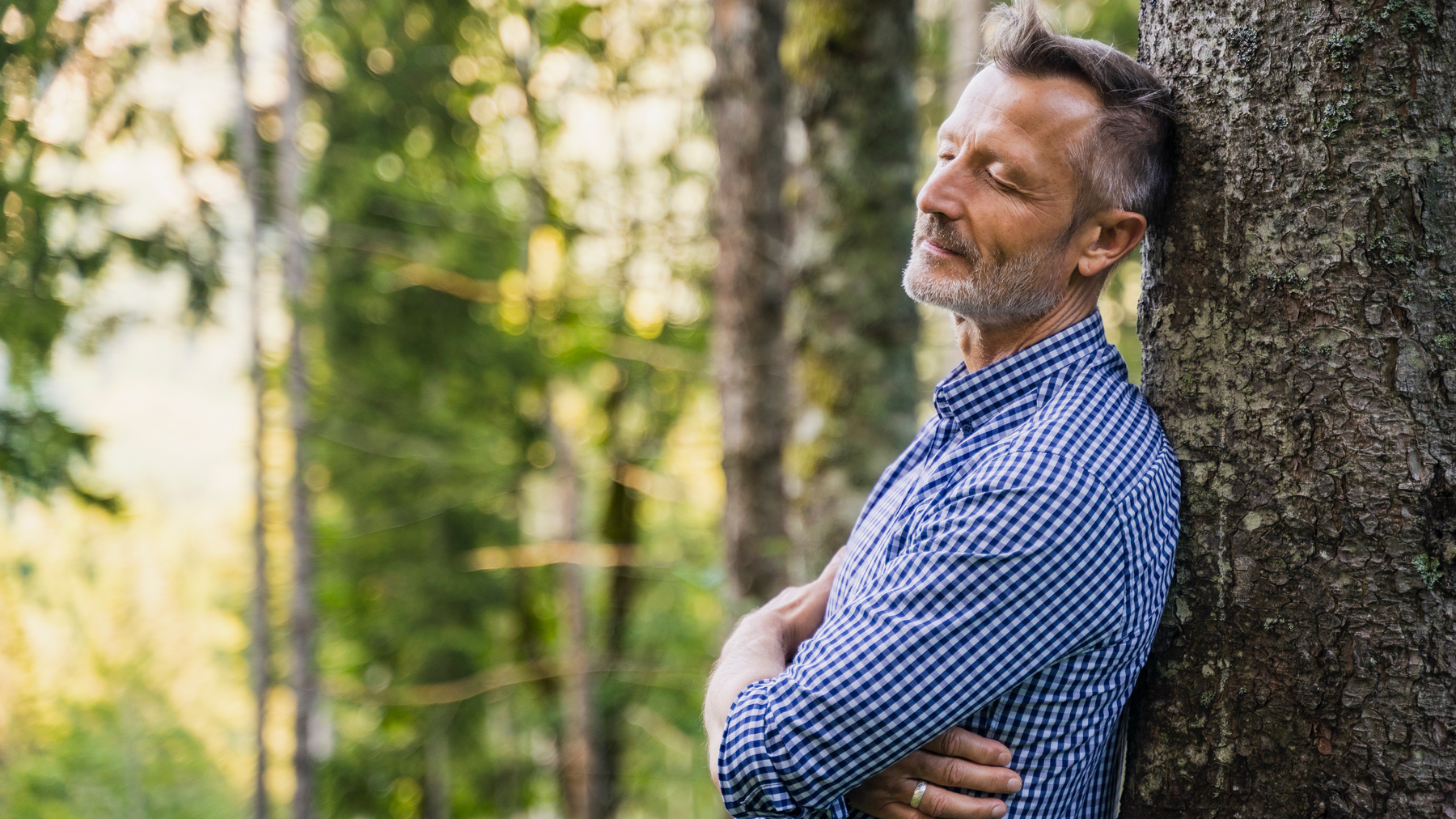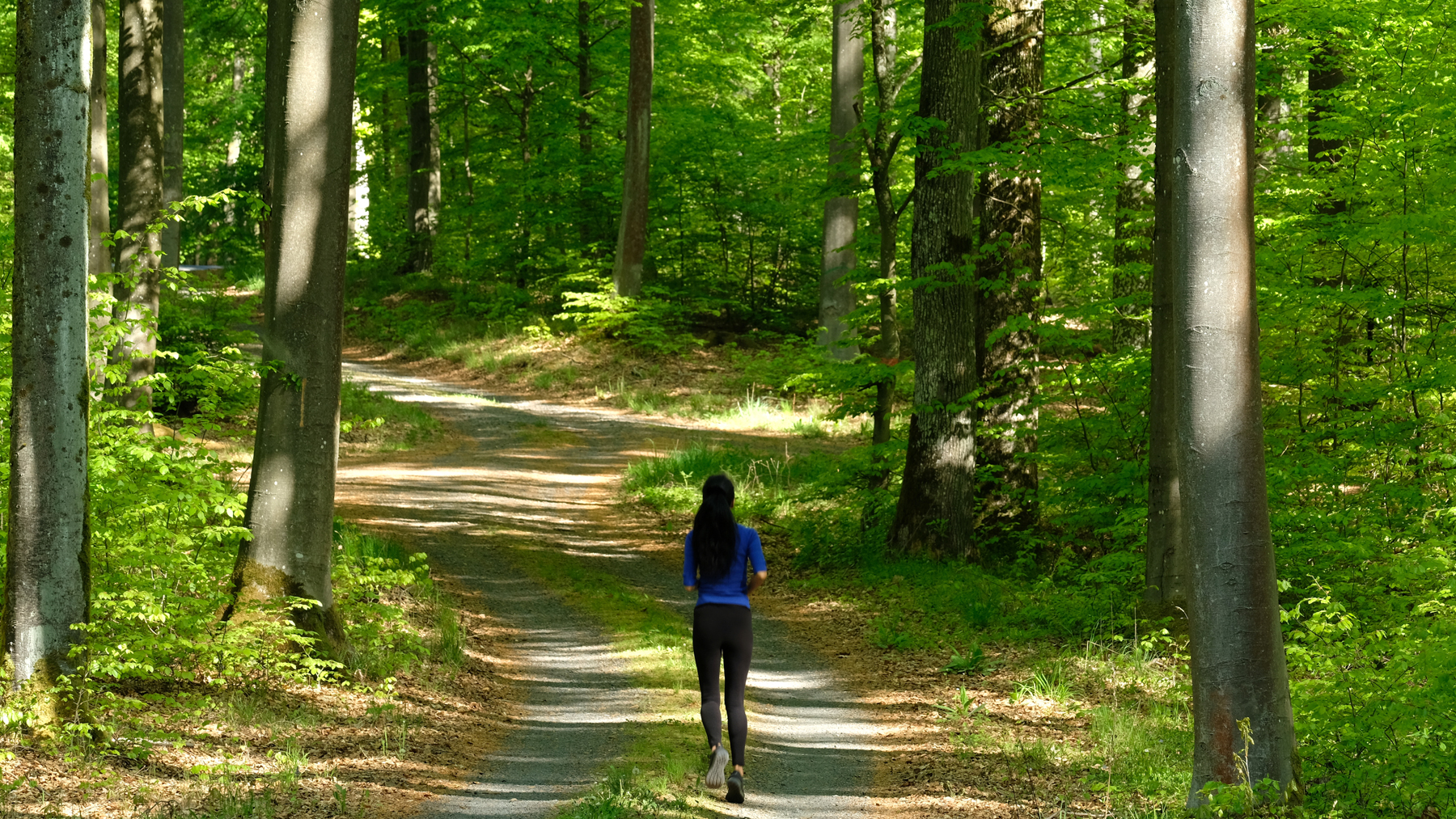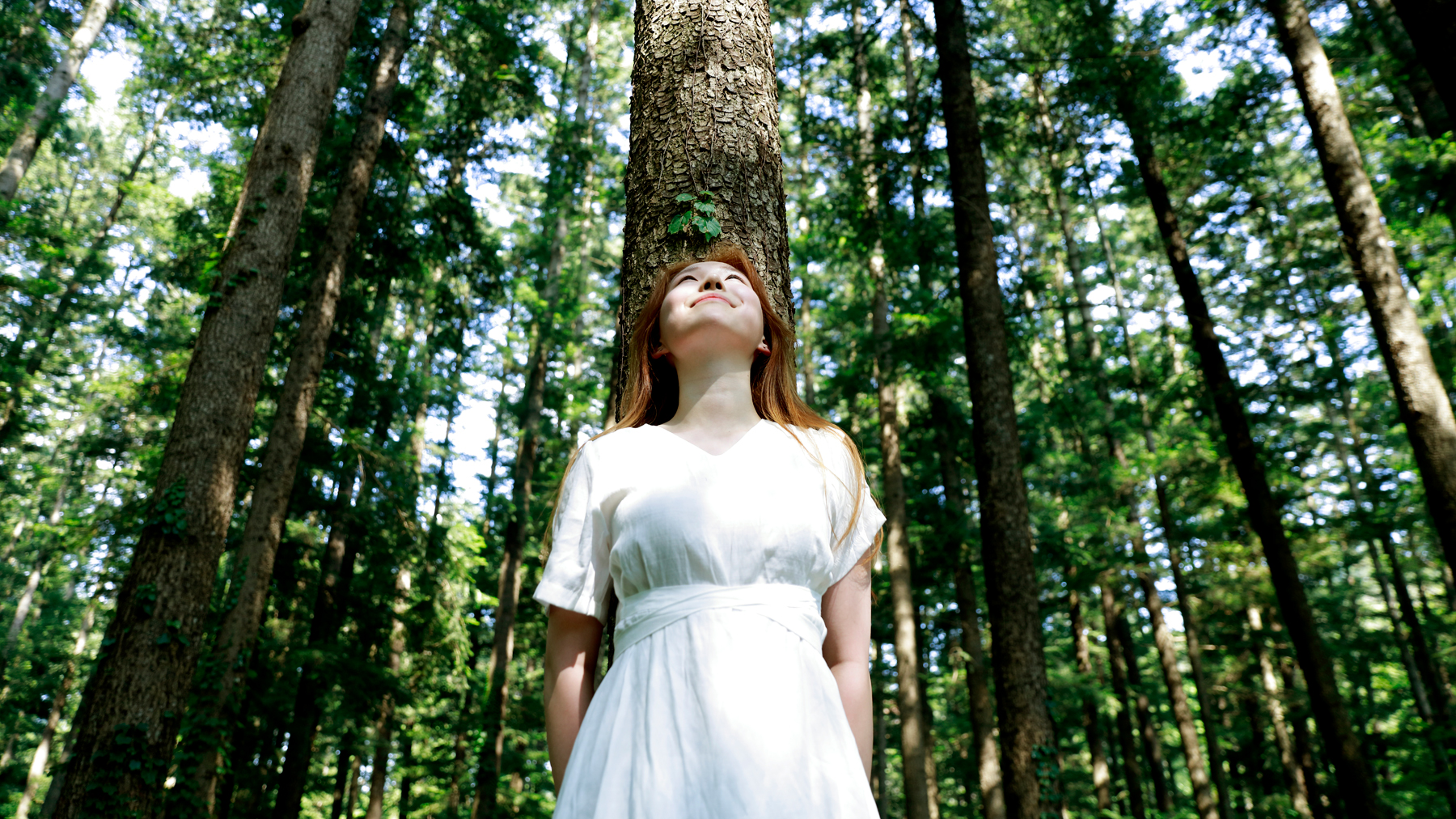What is forest bathing?
What is forest bathing? Here’s everything you need to know about the Japanese practice


What is forest bathing? Spending time in the outdoors has become increasingly important to more and more people ever since the pandemic. Despite stay-at-home orders being a thing of the past, the demand for nature fuelled activity lives on. But is forest bathing as serene as it sounds and does it actually involve bathing?
In the 1980s the Japanese Government introduced something called Shinrin Yoku - shinrin meaning ‘forest’ and yoku meaning ‘bath’ - to help combat burnout amongst stressed-out urban dwellers while making good use of Japan’s vast wooded areas.
The act of forest bathing, or enveloping yourself in nature, is believed to significantly improve people's stress levels and overall health. Perhaps you’re thinking what equipment do you need to do this, a pair of the best shoes for walking? Some swimming trunks?
Some may be envisioning ‘forest bathing’ as nestling into a bed of soggy leaves or floating in a mossy lake and will be able to dream up much more tempting ways to wind down from the chaos of modern life. But we spoke to Dr. Carly Wood, a lecturer in Sport and Exercise Science at the University of Essex who is working in association with The Columbia Hike Society, and found out that forest bathing is actually a lot simpler and fuss-free than it sounds.

Dr Carly Wood is a lecturer in Sport and Exercise Science at the University of Essex. Her research interests focus on the role of physical activity in promoting health and well-being. She recently worked with Columbia Sportswear on their latest campaign on Ecotherapy, to delve deeper into people going outdoors and turning to Forest Bathing (a form of Ecotherapy) as a way of keeping both mentally and physically fit.
What is forest bathing all about?
“Forest bathing, also called ‘shinrin-yoku’ involves an individual immersing themselves in a forest environment,” explained Wood and according to a 2022 study published in the International Journal of Mental Health and Addiction, forest bathing has been demonstrated to reduce stress, depression, anger, and anxiety.
But you aren’t excluded from reaping the benefits if you don’t live near a forest. Research published in the SSM Population Health journal found that broader nature-based activities can also lead to positive mental and physical health outcomes.
Whilst forest bathing is largely considered a tool for health promotion, Wood highlighted that some broader nature-based activities can also be used to improve specific health outcomes. This process is termed ‘ecotherapy’.
“Definitions of ecotherapy vary, however it is often referred to as a facilitated therapeutic intervention based in a natural setting, which is typically done in a group, and focuses on the activity as opposed to the health outcome,” notes Wood, “Examples of ecotherapy activities might include woodland walks, farming, conservation activities or gardening and take place in a range of natural settings, including urban green spaces.”

Is forest bathing a form of exercise?
If you’re constantly working towards a new fitness goal or sports achievement, exercise may have become less of an outlet and more like a job on top of your standard nine-five. If you think this applies to you, then forest bathing might be able to help you slow down a little.
Get the Fit&Well Newsletter
Start your week with achievable workout ideas, health tips and wellbeing advice in your inbox.
“Forest bathing could be considered a form of exercise if it involves undertaking physical activity within the forest environment, for example, walking through the forest.
“However, the intensity of the activity undertaken is likely to vary between experiences and the physical activity is unlikely to be the purpose of the forest bathing experience. This also applies to ecotherapy activities which typically include some form of physical activity in a natural environment,” explained Wood.
What are the key benefits?
There are heaps of positive effects you can experience from forest bathing. If you choose to do it as part of a group it can give a real community feel and even help to cure feelings of loneliness. It can spur a greater connection between nature and yourself, helping you to appreciate your surroundings and there is genuine scientific evidence behind the proven physical and health benefits so we’ve listed some below.
1) It can improve immune function
Everybody wants to build stronger immunity so that our bodies can be better at fighting off viruses and diseases that try to attack our immune systems. Many people take vitamins, like the best vitamin D supplements, when they don’t get enough vitamin D from sunshine (this vitamin is great for our immune systems).
But here’s why you might also like to dose up on nature after your morning vitamins, come rain or sunshine. According to a review in the Environmental Health and Preventive Medicine journal, something called Natural Killer activity increased among a group of Japanese adults who went and experienced a three-day forest bathing trip.
Natural Killer cells get this name because they help kill off infections in the body. If you’re wondering what can be so special about spending time in the forest and its ability to magically build up stronger immunity: phytoncide is the chemical released by trees that is believed to be beneficial for the immune system.
2) It can help to lower stress levels
Cortisol is your body’s main stress hormone and plays a key role in how your body responds to stress. Things like diet, sleep, exercise, and caffeine are all examples of things that can heighten your cortisol levels. While you try to keep on top of these areas to try and lower your stress levels you should also consider forest bathing as an enjoyable activity and solution.
A separate review published in the International Journal of Biometeorology found that forest bathing can have short-term benefits for reducing stress. The study compared cortisol levels of urban dwellers and those who went and spent time in forest areas.
3) It can boost your mental health
Anyone can start to feel low and unhappy at times and sometimes these feelings can feel especially hard to overcome. While you should always seek out professional help, enjoying nature is something that is free and accessible to everyone and has proven benefits.
A 2019 study conducted on forest bathing and its potential physiological and psychological effects revealed that a day-long session of forest bathing ‘demonstrated significant positive effects on mental health, especially in those with depressive tendencies’.

Do you need to like the outdoors to enjoy forest bathing?
Yes, you don’t have to be a super outdoorsy person to gain from forest bathing. “Evidence suggests that the health benefits derived from engaging with natural environments are universal and as little as five minutes of exposure to nature can provide health benefits” shared Wood.
How to get started...
“Forest bathing requires immersion in a forest environment, which may not be possible for everyone. However, evidence supports the health benefits of engagement with a range of natural environments, including urban nature,” according to Wood.
So city dwellers shouldn’t rule out using ecotherapy as a means to escape their hectic life and tune into their mental wellbeing more. Finding a small part of nature around you such as a community garden, park, or pond, or perhaps traveling out of the city to a nearby beach can help you get stuck into some ecotherapy. Wood also suggests individuals look to join or volunteer at ecotherapy groups within their local community if this exists around them.
Looking for more ways to boost your wellbeing? Check out our meditation tips for beginners.
Jessica is an experienced fitness writer with a passion for running. Her career in journalism began in local news and she holds a Masters in journalism. Jessica has previously written for Runners World, penning news and features on fitness, sportswear and nutrition.
When she isn't writing up news and features for Fit&Well covering topics ranging from muscle building, to yoga, to female health and so on, she will be outdoors somewhere, testing out the latest fitness equipment and accessories to help others find top products for their own fitness journeys. Her testing pairs up nicely with her love for running. She recently branched out to running 10Ks and is trying to improve her time before moving on to larger races. Jessica also enjoys building on her strength in the gym and is a believer in health and wellness beginning in the kitchen. She shares all of this on her running Instagram account @jessrunshere which she uses for accountability and for connecting with like-minded fitness lovers.
-
 I do these two things every day to stay fit and healthy, says the newest star trainer on Chris Hemsworth's fitness app
I do these two things every day to stay fit and healthy, says the newest star trainer on Chris Hemsworth's fitness appHere's how Centr's Korey Rowe trains for longevity
By Sam Rider Published
-
 I thought sports weren't for me, until I realised they're a game-changer for ticking off cardio
I thought sports weren't for me, until I realised they're a game-changer for ticking off cardioI swapped HIIT and running for tennis—and I've never felt better
By Alice Porter Published